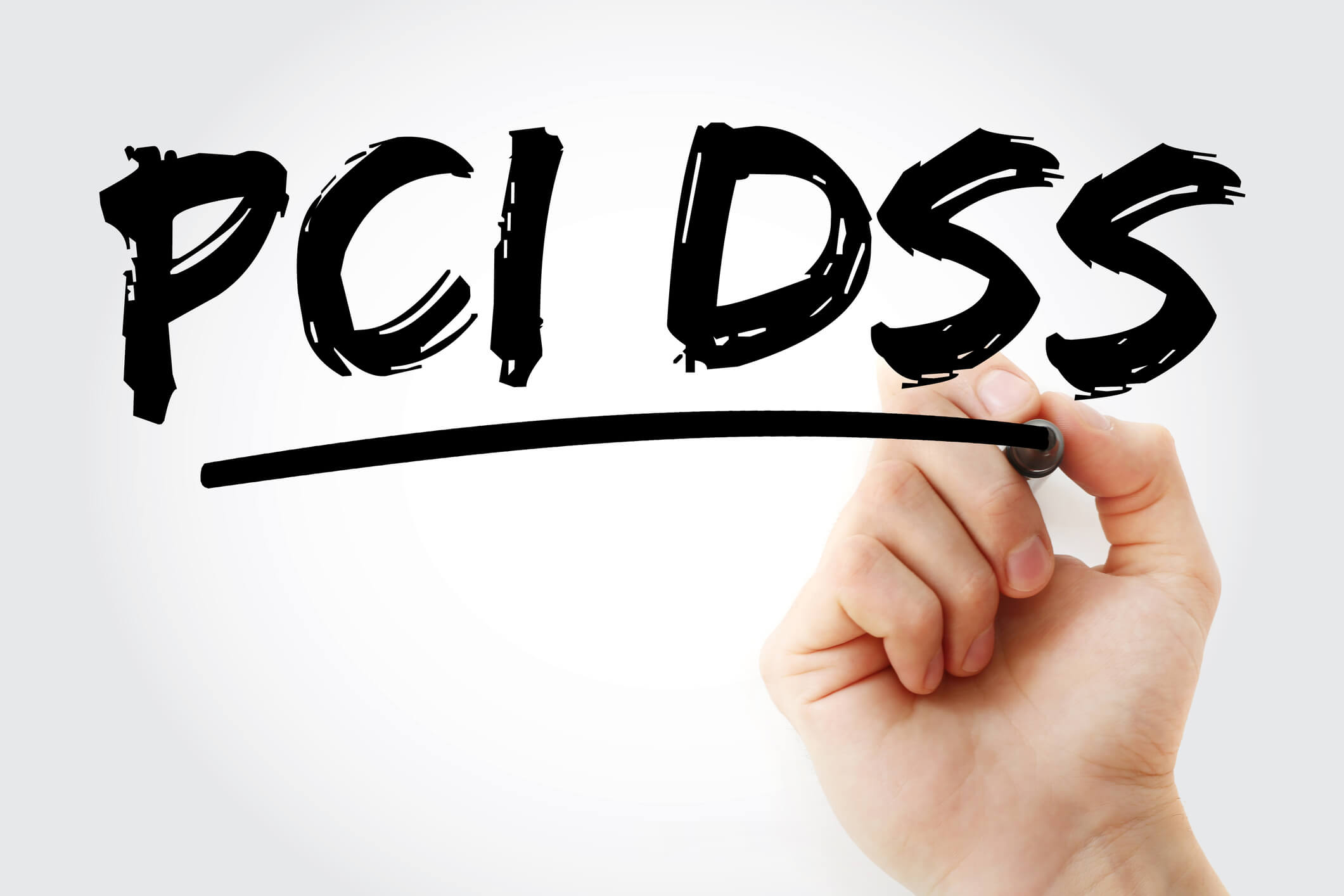
By Karen Henriques July 10, 2024
The cannabis industry has experienced significant growth in recent years, with more states legalizing both medical and recreational use. As the industry continues to expand, so does the need for proper security measures, including Payment Card Industry (PCI) compliance. In this comprehensive guide, we will explore the importance of PCI compliance in the cannabis industry and provide valuable insights on how businesses can achieve and maintain compliance.
Understanding PCI Compliance and its Importance in the Cannabis Industry
PCI compliance refers to the adherence to a set of security standards established by the Payment Card Industry Security Standards Council (PCI SSC). These standards are designed to protect cardholder data and ensure secure payment transactions. Compliance with these standards is crucial for any business that accepts credit or debit card payments, including cannabis businesses.
In the cannabis industry, where cash transactions have traditionally been the norm, the acceptance of card payments has become increasingly important. Not only does it provide convenience for customers, but it also helps businesses streamline their operations and improve cash flow. However, with the acceptance of card payments comes the responsibility of ensuring the security of sensitive cardholder data.
The Basics of PCI Compliance for Cannabis Businesses
To achieve PCI compliance, cannabis businesses must adhere to a set of requirements outlined by the PCI SSC. These requirements include implementing secure network infrastructure, maintaining strong access controls, regularly monitoring and testing systems, and maintaining a comprehensive information security policy.
One of the fundamental requirements for PCI compliance is the implementation of secure payment card processing systems. This involves using secure payment terminals, encrypting cardholder data during transmission, and storing data securely. Additionally, businesses must ensure that their networks are protected by firewalls and regularly updated with the latest security patches.
Common Challenges Faced by Cannabis Businesses in Achieving PCI Compliance
Cannabis businesses face unique challenges when it comes to achieving PCI compliance. One of the main challenges is the federal illegality of cannabis, which creates a complex regulatory landscape. Many financial institutions are hesitant to work with cannabis businesses due to the conflicting federal and state laws, making it difficult for these businesses to find compliant payment processing solutions.
Another challenge is the lack of industry-specific guidance on PCI compliance. While the PCI SSC provides general guidelines, there is a need for more specific guidance tailored to the unique needs of the cannabis industry. This lack of clarity can make it challenging for businesses to navigate the compliance process effectively.
Steps to Achieve and Maintain PCI Compliance in the Cannabis Industry

Achieving and maintaining PCI compliance requires a proactive approach and a commitment to security. Here are the steps that cannabis businesses can take to ensure compliance:
- Understand the requirements: Familiarize yourself with the PCI Data Security Standard (PCI DSS) and the specific requirements for your business type.
- Conduct a risk assessment: Identify potential vulnerabilities and risks in your payment card processing systems and develop a plan to address them.
- Implement security measures: Implement the necessary security controls, such as firewalls, encryption, and access controls, to protect cardholder data.
- Regularly monitor and test systems: Continuously monitor and test your systems to identify any vulnerabilities or weaknesses that could be exploited.
- Develop an information security policy: Create a comprehensive policy that outlines your organization’s approach to information security and ensure that all employees are aware of and adhere to it.
- Train employees: Provide regular training and education to employees on the importance of PCI compliance and their role in maintaining security.
- Engage with compliant payment processors: Work with payment processors that specialize in serving the cannabis industry and have a proven track record of PCI compliance.
- Conduct regular audits: Regularly assess your compliance status through internal and external audits to identify any areas for improvement.
Best Practices for Securing Payment Card Data in Cannabis Businesses
Securing payment card data is of utmost importance for cannabis businesses. Here are some best practices to ensure the security of cardholder data:
- Use tokenization: Implement tokenization, which replaces sensitive cardholder data with unique tokens, to minimize the risk of data breaches.
- Encrypt data in transit and at rest: Encrypt cardholder data during transmission and storage to protect it from unauthorized access.
- Implement strong access controls: Restrict access to cardholder data to only authorized personnel and regularly review and update access privileges.
- Regularly update software and systems: Keep your payment processing systems and software up to date with the latest security patches to protect against known vulnerabilities.
- Monitor for suspicious activity: Implement real-time monitoring systems to detect and respond to any suspicious activity or potential breaches.
- Limit data retention: Minimize the amount of cardholder data you store and establish a data retention policy to ensure compliance with PCI requirements.
- Conduct regular vulnerability scans: Perform regular vulnerability scans to identify any weaknesses in your systems and address them promptly.
- Implement multi-factor authentication: Require multiple forms of authentication, such as passwords and biometrics, to access sensitive systems and data.
Choosing the Right Payment Processing Solution for PCI Compliance in the Cannabis Industry
Choosing the right payment processing solution is crucial for achieving PCI compliance in the cannabis industry. Here are some factors to consider when selecting a payment processor:
- Compliance expertise: Look for payment processors that have experience working with cannabis businesses and understand the unique compliance challenges they face.
- PCI compliance validation: Ensure that the payment processor is PCI compliant and can provide evidence of their compliance status.
- Secure payment processing systems: Choose a payment processor that offers secure payment terminals and encryption technologies to protect cardholder data.
- Integration capabilities: Consider whether the payment processor can integrate with your existing systems and software to streamline operations.
- Customer support: Evaluate the level of customer support provided by the payment processor, as prompt assistance is crucial in maintaining compliance.
- Transparent pricing: Understand the pricing structure and any additional fees associated with the payment processing solution to avoid unexpected costs.
Training and Educating Employees on PCI Compliance in Cannabis Businesses

Employee training and education play a vital role in maintaining PCI compliance in cannabis businesses. Here are some steps to ensure that employees are well-informed and compliant:
- Develop a training program: Create a comprehensive training program that covers the basics of PCI compliance, security best practices, and the consequences of non-compliance.
- Provide regular training sessions: Conduct regular training sessions to reinforce the importance of PCI compliance and update employees on any changes or new requirements.
- Offer online resources: Provide employees with access to online resources, such as training videos and informational materials, to reinforce their knowledge.
- Conduct simulated phishing exercises: Test employees’ awareness and response to potential phishing attacks through simulated exercises to identify areas for improvement.
- Establish reporting procedures: Encourage employees to report any suspicious activity or potential security breaches promptly and provide clear procedures for doing so.
- Reward compliance: Recognize and reward employees who consistently demonstrate compliance with PCI requirements to foster a culture of security awareness.
Auditing and Assessing PCI Compliance in the Cannabis Industry
Regular auditing and assessment are essential to ensure ongoing PCI compliance in the cannabis industry. Here are some steps to effectively audit and assess compliance:
- Conduct internal audits: Regularly review your organization’s processes, systems, and controls to identify any gaps or areas for improvement.
- Engage external auditors: Hire external auditors who specialize in PCI compliance to conduct independent assessments of your compliance status.
- Perform vulnerability scans: Conduct regular vulnerability scans to identify any weaknesses in your systems and address them promptly.
- Review policies and procedures: Regularly review and update your information security policies and procedures to align with the latest PCI requirements.
- Monitor and log activities: Implement robust monitoring and logging systems to track and record activities related to cardholder data and identify any anomalies.
- Remediate identified issues: Take prompt action to address any issues or vulnerabilities identified during audits and assessments to maintain compliance.
Staying Up-to-Date with Evolving PCI Compliance Standards in the Cannabis Sector
PCI compliance standards are continually evolving to keep up with emerging threats and technologies. To stay up-to-date with these changes in the cannabis sector, businesses should:
- Monitor industry updates: Stay informed about the latest developments in PCI compliance for the cannabis industry through industry publications, forums, and regulatory updates.
- Engage with industry associations: Join industry associations and participate in relevant events and conferences to stay abreast of the latest trends and compliance requirements.
- Engage with compliant payment processors: Work with payment processors that actively monitor and adapt to changes in PCI compliance standards to ensure ongoing compliance.
- Regularly review PCI SSC guidelines: Stay informed about the latest guidelines and recommendations issued by the PCI SSC to ensure compliance with the most current standards.
- Engage with compliance consultants: Consider engaging with compliance consultants who specialize in the cannabis industry to receive expert guidance on evolving compliance standards.
FAQs:
Q.1: What is PCI compliance, and why is it important for cannabis businesses?
Answer: PCI compliance refers to the adherence to a set of security standards established by the PCI SSC to protect cardholder data. It is important for cannabis businesses as it ensures the security of payment transactions and helps build trust with customers.
Q.2: What are the specific challenges faced by cannabis businesses in achieving PCI compliance?
Answer: Cannabis businesses face challenges such as the federal illegality of cannabis, which creates a complex regulatory landscape, and the lack of industry-specific guidance on PCI compliance.
Q.3: How can cannabis businesses achieve and maintain PCI compliance?
Answer: Cannabis businesses can achieve and maintain PCI compliance by understanding the requirements, implementing security measures, regularly monitoring and testing systems, and training employees on compliance.
Q.4: What are the best practices for securing payment card data in the cannabis industry?
Answer: Best practices for securing payment card data in the cannabis industry include using tokenization, encrypting data in transit and at rest, implementing strong access controls, and regularly updating software and systems.
Q.5: How can cannabis businesses choose the right payment processing solution for PCI compliance?
Answer: Cannabis businesses should consider factors such as compliance expertise, PCI compliance validation, secure payment processing systems, integration capabilities, customer support, and transparent pricing when choosing a payment processing solution.
Q.6: What steps should cannabis businesses take to train and educate their employees on PCI compliance?
Answer: Cannabis businesses should develop a training program, provide regular training sessions, offer online resources, conduct simulated phishing exercises, establish reporting procedures, and reward compliance.
Q.7: How can cannabis businesses audit and assess their PCI compliance?
Answer: Cannabis businesses can audit and assess their PCI compliance by conducting internal audits, engaging external auditors, performing vulnerability scans, reviewing policies and procedures, monitoring and logging activities, and remediating identified issues.
Q.8: What are the latest updates and evolving standards in PCI compliance for the cannabis industry?
Answer: To stay up-to-date with the latest updates and evolving standards in PCI compliance for the cannabis industry, businesses should monitor industry updates, engage with industry associations, regularly review PCI SSC guidelines, engage with compliant payment processors, and consider engaging with compliance consultants.
Conclusion
PCI compliance is crucial for cannabis businesses that accept card payments. By understanding the basics of PCI compliance, addressing common challenges, implementing best practices, choosing the right payment processing solution, training employees, conducting audits, and staying up-to-date with evolving standards, cannabis businesses can ensure the security of cardholder data and maintain compliance. By prioritizing PCI compliance, cannabis businesses can build trust with customers and contribute to the overall growth and legitimacy of the industry.